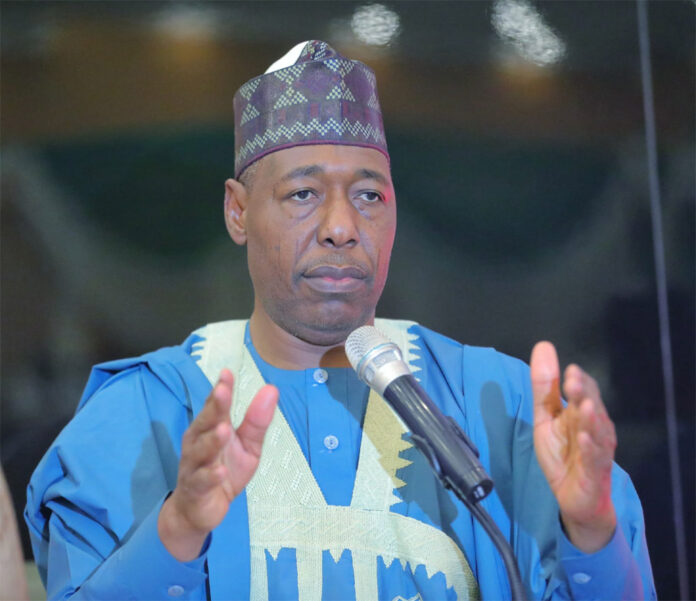Borno State Governor, Babagana Umara Zulum, has expressed concern over a recent development at an Internally Displaced Persons (IDP) camp, where a man arrived with one wife and married three more while living in the camp.
This incident has sparked controversy and highlighted the challenges faced in managing IDP camps.
The man, who fled his insurgency-ravaged village several years ago, leveraged the availability of free food, shelter, and medical care provided at the camp to marry three additional women. While polygamy is culturally and religiously accepted in the region, Governor Zulum questioned the appropriateness of such actions in a setting meant to prioritize recovery and survival.
“IDP camps are not meant to become havens for opportunistic behavior. This case highlights a misuse of resources that could otherwise support more vulnerable families,” Governor Zulum remarked.
Humanitarian workers report that food and resources meant for displaced families are often stretched thin, leaving many families to struggle with basic necessities. The actions of individuals like this man exacerbate the crisis, prompting Governor Zulum to call for stricter measures to ensure accountability within the camps.
READ ALSO: 2027: Lagos youths reject Seyi Tinubu’s endorsement for Governor
It’s time for African military to close ranks — Tinubu
Zulum opens summit to reform Almajiri education
The local community has expressed mixed feelings about the situation. Some sympathize with the man, citing the harsh realities of life in displacement and the human need for companionship. Others agree with the governor, emphasizing that the focus should remain on survival and rebuilding lives.
A community elder in Maiduguri noted, “While marriage is a personal matter, this case highlights the need for better management in IDP camps. People should not take undue advantage of the humanitarian support provided.”
Governor Zulum issued a stern warning, stating that his administration would not tolerate any behavior that undermines the purpose of IDP camps. He reiterated the need for displaced persons to focus on regaining stability and preparing to return to their communities once conditions permit.
“We are doing our best to provide for displaced persons, but it is important that everyone contributes to the solution and not the problem,” he added.
This incident underscores the complexities of managing displacement crises, particularly in regions where cultural norms and humanitarian interventions intersect. The Borno State Government faces significant challenges in providing for the approximately 874,213 IDPs across 17 Local Government Areas.

